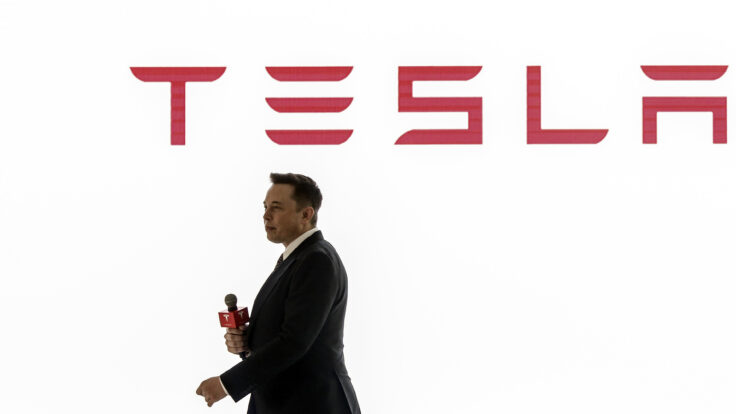|
Hello and welcome back to Dry Powder.
Happy Sunday, and thanks for reading Puck. If you’re enjoying these private emails, consider sharing the subscription link with a friend. In today’s column: David Zaslav, Jeff Zucker, Adam Arons, David McCormick, and Jamie Dimon, among others.
The inside conversation on Wall Street about Warner’s CNN headache, AMC’s meme-bond offering, and Jamie Dimon’s dream job. This past week, Facebook’s announcement that its monthly and daily active users had plateaued sent its high-flying stock down some 25 percent, shedding around $230 billion of market value in the process. Analysts and investors wondered if there would be larger ramifications for the company—which has committed far worse non-financial sins—and for the broader social-media sector? Meanwhile, the next afternoon, Amazon exceeded earnings expectations and its stock gained $190 billion in market value, a one-day gain greater than that of any other company in history. In less than 24 hours, the company basically increased by the market value of two GEs.
Welcome to 2022, and the return of volatility in the financial markets. And it’s not only the stocks of individual companies that are reacting wildly to earnings news on a daily basis. It’s also the bond market. At the start of the year, the 10-year Treasury bond was yielding 1.5 percent; it’s now yielding 1.9 percent, a 27 percent increase in yield in a month. That’s quite a move.
The reason volatility is back, of course, is because the Federal Reserve and its various board members, including Jay Powell, its chairman, and Roy Bostic, the president of the Federal Reserve Bank of Atlanta, have been making all sorts of noises about how the Fed is getting ready to end the 13-year Quantitative Easing party, wherein it manipulated long-term interest rates down to their lowest levels in recorded history and kept short-term interest rates at near zero. The Fed’s zero-interest-rate-policy, or ZIRP, worked magically in the wake of the 2008 financial crisis and again during the March 2020 Covid-related collapse in the financial market. But, as is too often the case, it was too much of a good thing for too long.
After all, the Fed’s balance sheet, approaching $9 trillion, is 10 times the size it was prior to the 2008 financial crisis. That means the Fed’s been doing a whole lot of bond buying and a whole lot of manipulating the price of money down to historically low levels. The financial markets had a bacchanalia. The Dow Jones Industrial Average was around 6,500 in March 2009, when the Fed’s bond-buying began; it’s now 35,000, a mere 438 percent increase in 13 years. And all you had to do was invest in the market, or hold on to your existing portfolio of stocks. No hedge fund fees or private-equity fees required. No wonder the market is freaking out with the Fed on the verge of pulling the plug on Quantitative Easing. It also hurts, I imagine, when the morphine drip is removed from the arm of a burn victim.
We’ve become addicted to low interest rates, you may have noticed, and why not? The constituency for low interest rates is vast and varied: anyone who makes money from money (the Wall Street crowd), anyone who borrows money (corporations and businesses around the world), and anyone who invests in stocks and bonds (almost everyone, one way or another). The only haters of low-interest rates are those people who lend money and those people who live on a fixed-income based on a portfolio of bonds, or money market funds. These people have been screwed by the low interest-rate environment. Anyway, it’s now starting to correct, and the tables are turning. Those people who believed stocks and bonds (and SPACs, and meme stocks, and crypto, and NFTs, etc.), like trees, could grow to the sky, are feeling the harsh pain of reality. So when Facebook or Netflix or Peloton miss earnings expectations, watch out below. Investors are in no mood to wait around and hear more hollow justifications. Just look at Cathie Wood, my longtime nemesis. She’s been highly geared to the high-flying stocks of companies she deemed to be the chosen ones. Her ARK Innovation ETF, just one of her ETFs, is down 50.5 percent in the last year. I feel terribly for all the people who believed her and have lost half of their investment in the last year. But that’s what happens when investors lose their minds.
What Will Zaz Do About Zucker?
The forced resignation of Jeff Zucker from CNN following his admitting a consensual relationship with his longtime confidante and comms chief, Allison Gollust, was the story of the week. And my partner Dylan Byers did an incredible job leading the coverage about not only the reckoning, but also its consequences. In the wake of Zucker’s departure, a triumvirate of executives will serve as CNN’s interim heads, but none are likely to get the job, which will probably only be finally squared after the Warner Bros. Discovery deal closes in the second quarter. There is little doubt, though, that CNN remains one of the more valuable assets that David Zaslav will be acquiring with the $48 billion merger of Discovery and WarnerMedia. So what will Zaz do with CNN?
David is a visionary, it’s fair to say. He was one of the earliest corporate executives at GE, along with Jack Welch, Bob Wright, and Tom Rogers (let’s not forget Tom), to comprehend the importance of cable television to the future of how we consume content on the small screen. He was a big part of the team that created CNBC and MSNBC, and made them what they are today. He has long been partnered with John Malone, the cable television pioneer, and Malone remains one of Discovery Communications’ biggest shareholders.
In January 2007, David left GE for Discovery and created a juggernaut of European sports and a variety of channels, such as Animal Planet and the Food Network, that have proved to be the perfect antidote at the end of the day when we just can’t possibly take any more bad news. He has consistently been one of the highest paid media executives. And now he will oversee the Warner Brothers television and movie production business and CNN, assuming the Feds approve the deal, which they surely will since their previous Trump-inspired foot-dragging scrutiny over AT&T’s acquisition of Time Warner was one of major reasons the deal failed, a mere three years after it finally closed. (AT&T C.E.O. John Stankey’s confounding inability to understand the media industry is another.)
Zaslav’s control of CNN brings to mind a historical irony. Once upon a time, when Zaz was trying to get Malone’s support for GE’s effort to start CNBC, and then to bolster it by buying FNN (Financial News Network) out of bankruptcy, he was concerned that Ted Turner would start a competing business channel. But Malone assured Zaslav that Turner had no interest in business news and was happy with CNN remaining a general news channel. That was sufficient assurance for the GE execs to make a winning bid for FNN and to double down on CNBC and business news. It was a wise gambit for all involved, and changed the nature of the business news industry.
I know David was close to Zucker, as has been widely reported. But he’s also a savvy executive with a long memory. He probably recalls how and why Zucker’s tenure atop NBCU never panned out as successfully as Jeff Immelt, the GE C.E.O. who gave him the job, hoped. In the meantime, Zaz is too smart to comment on his friend’s abrupt departure. Last week he said on CNBC that he had nothing to do with Zucker’s “retirement.” David is on a mission to make Warner Bros. Discovery an important player in Hollywood, New York City, and beyond. I would never bet against him. He’s been at this a long, long time. But he does have some serious challenges to grapple with, and fast. There is, for starters, the Discovery stock price, which is down 63 percent from its 52-week-high. Investors may also be worried about the sizable $58 billion of debt that Warner Bros. Discovery will carry—$43 billion of which AT&T is larding up on Warner Bros. before spinning it off. The combined company will have around $14 billion of EBITDA, making its leverage a seemingly manageable 4.1x. For some reason, for all the hoopla around the deal, investors just haven’t taken to it, which is a little hard for me to understand. In other words, David has a lot to think about—the merger integration, the strategic direction of the combined company, and of course his stock price. I’d put losing Jeff Zucker pretty far down his list of concerns.
The Gordon Gekko of the Meme Stock Era
A couple months ago, my partner Matt Belloni absolutely skewered Adam Arons, the C.E.O. of AMC, the left-for-dead theater chain, which somehow turned into a meme stock darling, along with the likes of Game Stop and Hertz. Instead of handling AMC’s shocking good fortune responsibly and keeping his mouth shut, Arons assumed a Trump-like affect, constantly goading his meme army—the so-called “apes”—on Twitter, in order to continue to keep their support as consumer behavior shifted, irreversibly it seems, away from theater attendance to at-home streaming. Arons appears to be still riding the meme-stock hysteria, if AMC’s recent junk bond offering—which was nearly doubled last week to $950 million—is any indication. Have the AMC apes taken over Wall Street’s junk-bond investors, too?
Yes and no. On the one hand, Arons is just seeking to refinance AMC’s $5 billion of existing debt and this $950 million is a first step. The debt AMC is refinancing, issued early in the pandemic, paid interest at 10.5 percent. The new financing is estimated to be closer to 7.5 percent. So AMC saves 300 basis points in interest with the deal. That’s good for AMC and good for the new bondholders. It’s also good for the old bondholders, who get their money back when early in the pandemic that looked like a more risky bet.
Since debt is a contractual obligation of the debtor to repay, investors buying the AMC debt are—theoretically anyway—not taking on nearly the same risks as the AMC stockholders, who have no contractual obligation to receive anything. They are the crazy ones. But there’s no telling the holders of meme stocks anything. They are on a mission, however loony, and will not be dissuaded from it. And, oh have they paid the price. AMC’s stock is down 42 percent so far in 2022 and is off 79 percent from its 52-week-high. So AMC’s debt holders might just squeak by and get their contractual interest payments and that might be a better risk-adjusted return than they can get elsewhere. God bless them if that works out. As for AMC’s equity holders, haven’t you had enough of all of the shenanigans yet?
The Next Youngkin or McCormick?
After former Carlyle Group co-C.E.O. Glenn Youngkin’s surprise election to the Virginia governor’s mansion and optimism around David McCormick’s run for the open Pennsylvania senate seat, I’ve been getting asked the same question a lot lately: Who will be the next banker or private equity honcho that gets a taste for political life?
I think you have to divide this into two groups. There are the bankers who would love to be appointed to a White House cabinet, thus saving them from the thankless—and expensive—task of campaigning and putting their fates into the hands of actual voters. Into this camp go the likes of Jamie Dimon, Lloyd Blankfein, and Steve Schwarzman, who would love nothing more than to follow in the footsteps of Hank Paulson, Steve Mnuchin, Bob Rubin, Gary Cohn, and Steve Friedman, among others, and get nominated to be Treasury Secretary or to be appointed National Economic Advisor. In fact, I wouldn’t be surprised if the only thing that could get Jamie Dimon away from his corner office at JPMorgan Chase would be an offer to be Treasury Secretary. (Ditto Schwarzman, although he supposedly is giving up day-to-day operation of Blackstone to Jon Gray, his chosen successor.)
Then there are former Wall Street types like Youngkin and McCormick (and before them, Mitt Romney, Jon Corzine, and Phil Murphy) with the cajones to actually put their chips on the table, run for office, and make themselves vulnerable to the public. I admire them for their willingness to make the effort (even if I don’t agree with their politics). The sweet spot for people willing to take this plunge seems to be when they are in their mid-50s, when they probably have already made their pot of gold and still have enough stamina for retail politics. McCormick, for instance, has moved to a house outside of Pittsburgh and gets picked up each morning to drive across the state to press the flesh. (Sounds exhausting!) Who on Wall Street might have both the interest and the energy for a political run is hard to say.
People like Antonio Weiss, 55, or Josh Steiner, who is also around the same age, are two names that come to mind. I worked with them both at Lazard, and they are both top-notch intellects and men of substance. They both once upon a time worked at the Treasury—Weiss in the Obama administration and Steiner in the Clinton administration—and they are now working as partners at their new investment firm, SSW Partners, LP, along with Eric Schwartz, a former Goldman Sachs partner.
But not so fast. At the moment, both Weiss and Steiner have their hands full with a deal they just did to acquire Veoneer, along with Qualcomm. SSW Partners wants to end up with Veoneer’s auto parts business and is selling off the rest of Veoneer. In other words, these two dudes are plenty busy, so I don’t see running for elected office in their future anytime soon, if ever. On the other hand, if offered the job of Treasury Secretary, then all bets are off.
That’s all for now. I’ll be back on Wednesday with more Dry Powder. Bill
FOUR STORIES WE’RE TALKING ABOUT It’s a strong possibility that Sarah Palin’s embarrassment makes First Amendment history, but not for the reasons you think. ERIQ GARDNER A potentially definitive, highly unscientific analysis of who has the most political juice right now in Silicon Valley. TEDDY SCHLEIFER Zuckerberg is diverting billions of dollars into the metaverse, even as Facebook’s core business begins to sour. Is it too late to turn back? ALEX KANTROWITZ How the most prestigious bank on Wall Street became smaller than its peers. And the M&A deals that could put it back on top. WILLIAM D. COHAN
|
-
Join Puck
Directly Supporting Authors
A new economic model in which writers are also partners in the business.
Personalized Subscriptions
Customize your settings to receive the newsletters you want from the authors you follow.
Stay in the Know
Connect directly with Puck talent through email and exclusive events.












